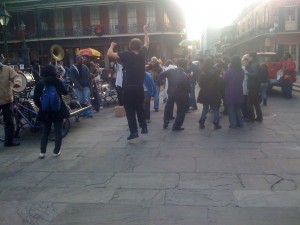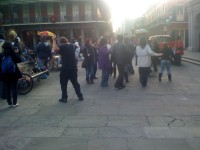IMG_3096.JPG

IMG_3094.JPG

12 N.O.
French Quarter Wanderings
After The Saints Redskins Game
We watch the Saints games from a friendly, comfortable neighborhood bar known for its drag shows - Starlight on the Park. In this bar the spectrum of gender roulette players are of one identity - we are neighbors pulling for the Saints.
After the game, a walk through the Quarter ends in Jackson Square where the brass band is playing with more enthusiasm than usual and, in a first, the usually large social demilitarized zone between band and tourists is filled with ... second line dancers. All the divergent Jackson Square populace (races, nationalities, drunks, sobers, etc.) are dancing together and chanting "Who Dat?" I am witnessing the living definition of "Community."
In the midst of the celebration, a drunk bully brazenly steals a beer from the hand of a tourist. It's unsettling but locals know that "Community" does not magically obsolete the problems of our city. In fact, New Orleans' unique closeness engenders a familiarity that makes even the most benign everyday social friction heat up quicker and hotter than most cities. In response, we avoid the stresses of community improvement for fear of upsetting the social balance of the city. Our social compact places the magical New Orleans feeling of "community" higher than self-improvement. It also creates an exceptionally strong emotional connection between us and our city. A city that by most objective measures is simply a goofy place.
I've lived in two Super Bowl cities where the team itself was celebrated by the entire population in momentary bursts of community but the social compact was different and these cities soon defaulted back to their impersonal selves. What is happening in New Orleans seems fundamentally different. Here the Saints act as an off-season Mardi Gras. A celebration where the entire population masks their diverse identities to become a cohesive group. A passionate celebration of community that is completely unique in the nation.
Similarly, WWOZ is a rare community radio station that relies on programming the music and personalities of New Orleans to the exclusion of even the excellent (but national) distribution of spoken word programming. WWOZ is another reflection of New Orleans' social compact. A city where we live what others merely talk about - community.
Jamie Dell'Apa
Saturday midnight to Sunday 3am shift



















